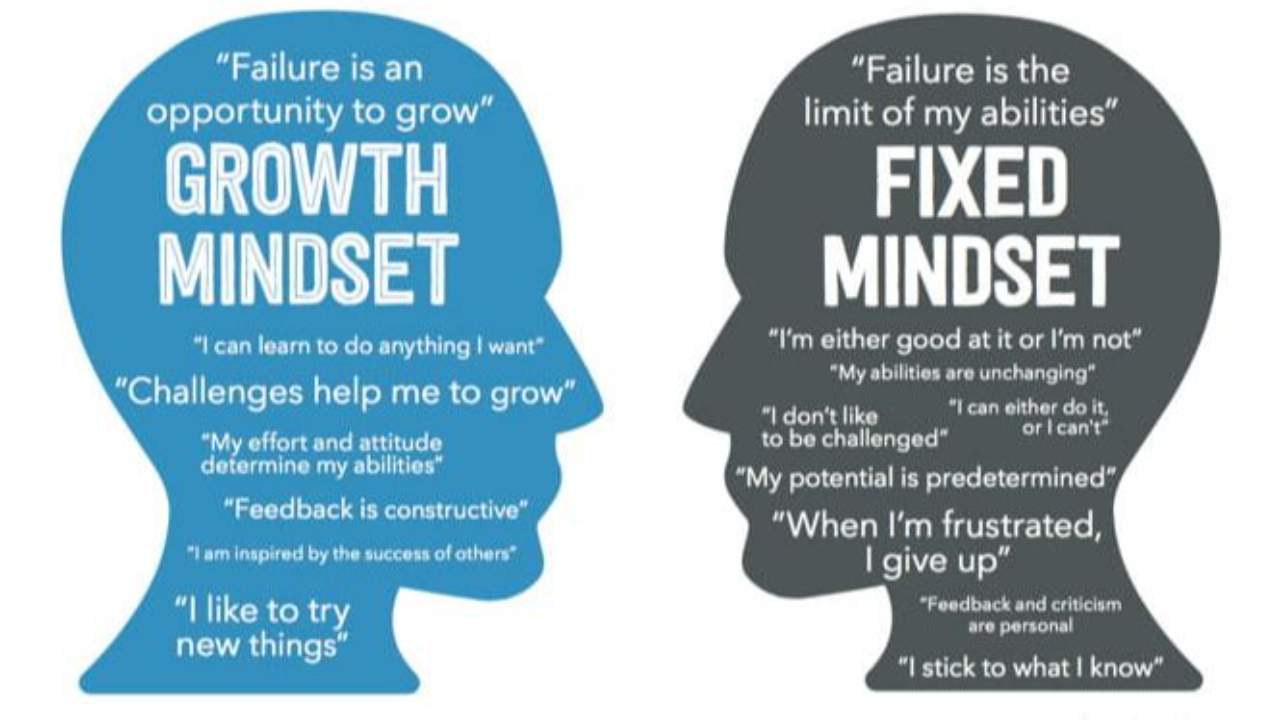The role of Growth Mindset for organisational success
Jan 31, 2023
Agility is in focus for leaders and organizations.
It includes the ability to adapt to changes as well as the speed of recovery (including mental and emotional) from challenges, setbacks, and failures so it's related to resilience.
Both are relevant on an individual and organizational level.
The key component in building agility is building a growth mindset and there are several misconceptions and struggles in implementation.
This newsletter will provide you with more clarity on what is a growth mindset, misconceptions about it, and what are the most effective ways to build it.
First, let me start by saying that...
Your mindset determines your success and happiness, as it determines how you deal with: challenges, setbacks, feedback, and risks.
1. What does a growth mindset actually mean and why it's important?
Based on research from Carol Dweck, the Lewis & Virginia Eaton Professor of Psychology at Stanford University and the author of Mindset: the new psychology of success:
Individuals who believe their talents can be developed (through efforts, strategies, and input from others) have a growth mindset. They tend to achieve more than those with a more fixed mindset (those who believe their talents are innate gifts). This is because they worry less about looking smart and put more energy into learning.
When entire companies embrace a growth mindset, their employees report feeling far more empowered and committed; they also receive greater organizational support for collaboration and innovation. In contrast, people at primarily fixed-mindset companies report more cheating and deception among employees, presumably to gain an advantage in the talent race.
Key signs of a fixed mindset:
- avoid taking big challenges or risks because of being afraid to fail and therefore play it safe
- see setbacks as a prove you are not good at it or smart
- do not ask for feedback out of fear of being criticized and not good
- feel ashamed of failures, and mistakes and hide them or justify
- are jalouse about others' success
- when we receive criticism or feel poorly compared with others, we become insecure or defensive,
etc.
Operating on a fixed mindset is fear-based, and destroys psychological safety.
Operating on a fixed mindset limits the development of individual and organization's potential and derails organizational transformation.
So it's indispensable to invest in developing a growth mindset.
2. Key misconceptions about the growth mindset
- I already have, and have always had, a growth mindset - People confuse a growth mindset with being flexible or open-minded or having a positive outlook. Everyone is actually a mixture of fixed and growth mindsets.
- A growth mindset is just about praising and rewarding effort - It’s critical to reward not just effort but learning and progress such as seeking help from others, trying new strategies, and learnings from setbacks to move forward.
- Talking about a growth mindset but not developing it - Nothing will happen without actions, such as encouraging risk-taking, and rewarding important lessons learned, even if a project doesn’t meet its original goals. Supporting collaboration across organizations rather than competition. Commitment to growing every member.
So watch out if any of those are your current misconceptions that will keep you from developing your growth mindset.
3. How to develop a Growth Mindset
Knowing that building a growth mindset is critical to building agility and organizational success is important.
However, awareness is just a starting point.
Effective leaders and organizations that focus on strengthening a growth mindset for themselves and their teams focus on building new habits of thinking through consistent daily efforts and practice.
Building those habits includes:
1. Developing an ability to catch yourself operating on a fixed mindset
2. Reduce trigger response that activates the fixed mindset
2. Building a new habit of looking and dealing with every challenge and setback - with compassion, curiosity, meaning, and creativity, that enables us to take clear-headed actions forward.
And this is what Mental fitness is about.
Bringing Mental fitness first to myself and then to my work with clients is accelerating their transformation.
It not only helps them to strengthen their growth mindset, and become more agile but also builds empathy, resilience, mental health, and confidence, reduces stress, and so much more.
What makes Mental fitness a game-changer - it focuses on treating the roots of human behaviors and is simplified into just 3 core strategies.
Interested to find out more about Mental fitness and how it can help you and your organization - let's get in contact.
#leadereship #leadershipdevelopment #theextraordinaryleadership #mindset
Reference: https://hbr.org/2016/01/what-having-a-growth-mindset-actually-means
STAY CONNECTED
Join my mailing list to receive weekly tips, inspiration, and industry highlights.
Submit
